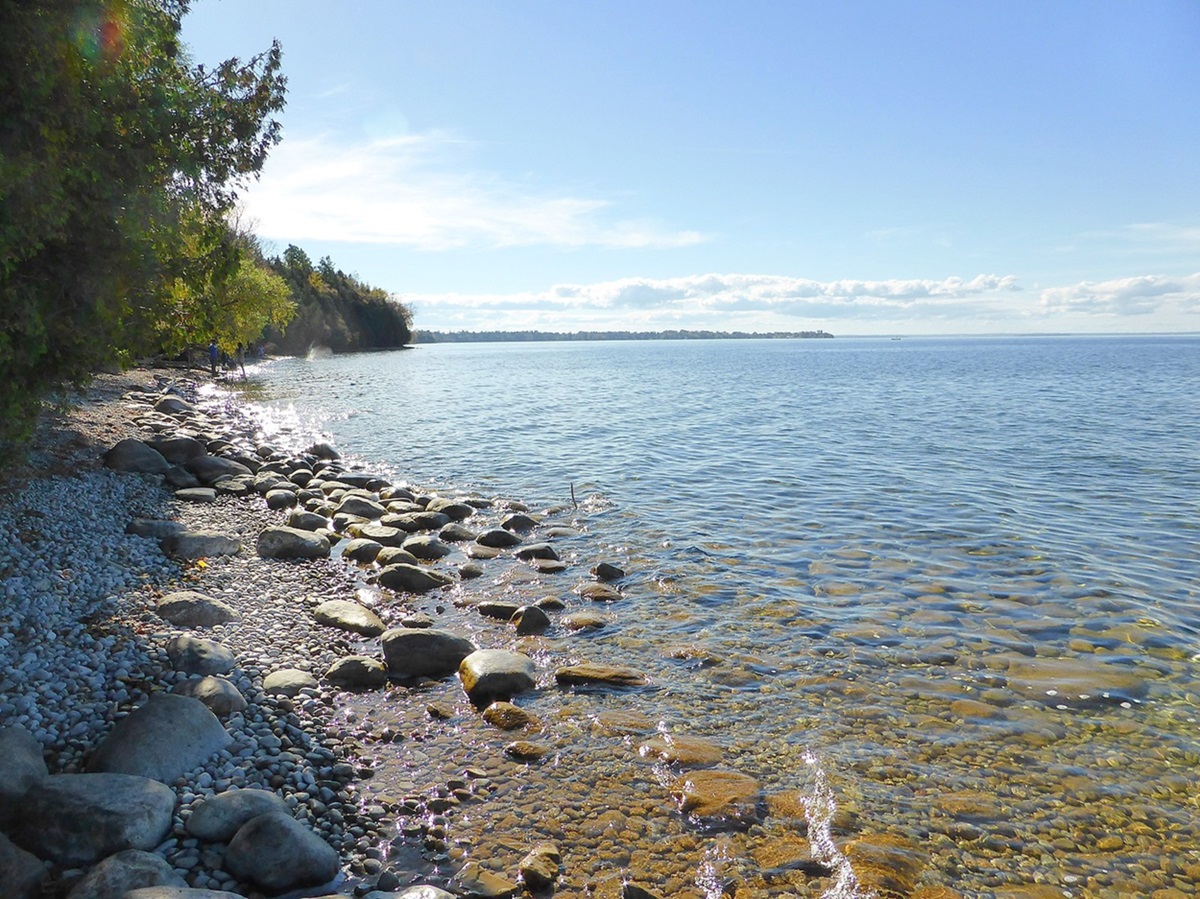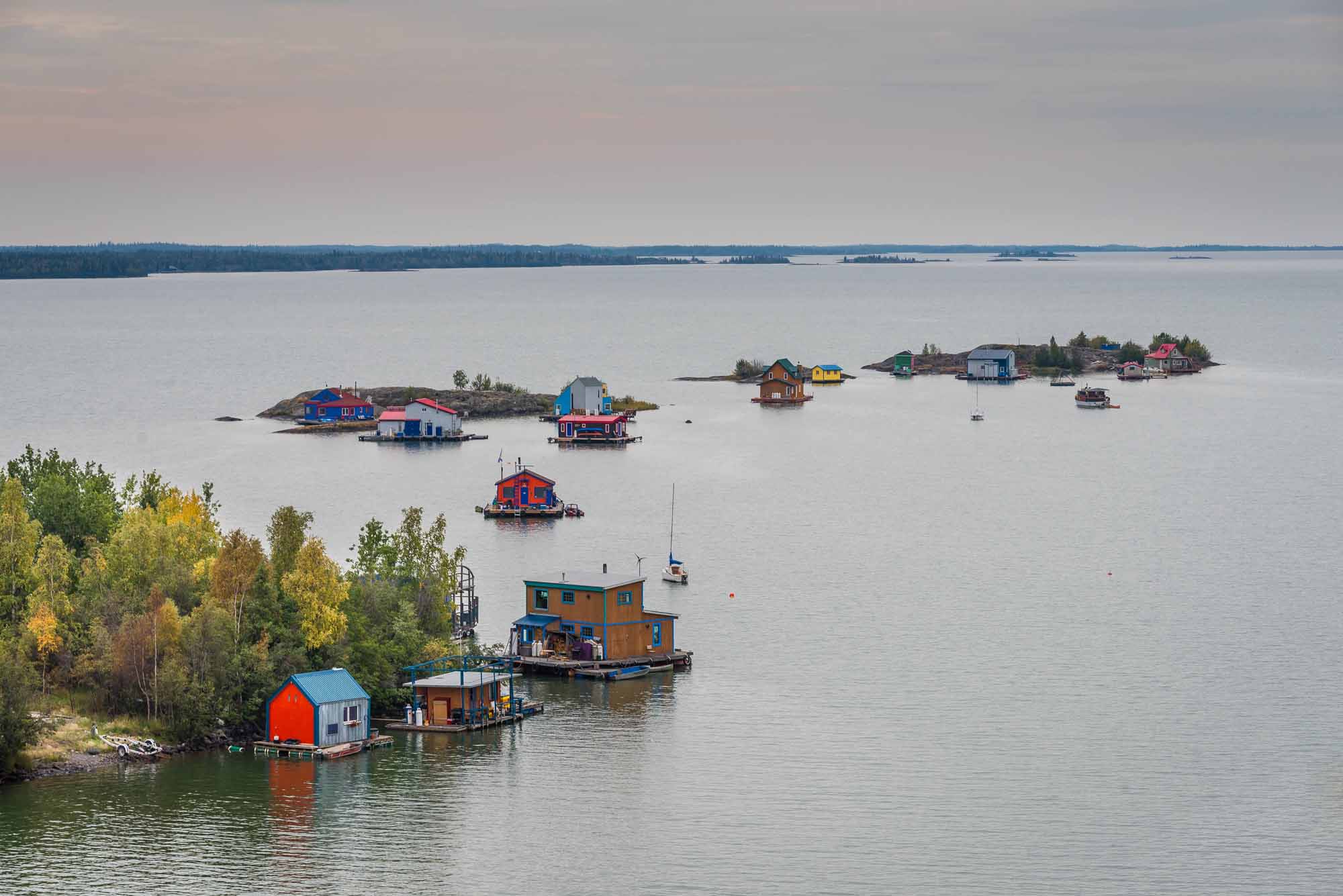Lake Simcoe, 744 km2, elevation 219 m, is situated in southern Ontario between Georgian Bay and Lake Ontario, 65 km north of Toronto. In the north, The Narrows divides it from Lake Couchiching at Orillia, and both lakes drain northwesterly via the Severn River to Georgian Bay. On the south, it touches a fertile marshland that has developed into an extensive market-gardening area. Barrie lies at the head of the lake's deep western arm, Kempenfelt Bay.
History
Long frequented by Indigenous Peoples, who hunted its shores and fished its waters, the lake was visited in 1615 by Samuel de Champlain, who was recruiting Wendat allies for a campaign against the Haudenosaunee. During the French regime, it was part of a fur-trade portage route linking Georgian Bay to Lake Ontario. Originally known by the French as Lac Aux Claies, it was named by Lieutenant-Governor John Graves Simcoe after his father. During the latter half of the 19th century, loggers proceeded north around Lake Simcoe, and the area attracted summer vacationers from the growing cities of southern Ontario. The lake is part of the Trent-Severn Waterway and a centre for recreational boating. Fishing for trout, whitefish and muskellunge has always been popular, especially today during the winter, through the ice (see Ice Fishing).


 Share on Facebook
Share on Facebook Share on X
Share on X Share by Email
Share by Email Share on Google Classroom
Share on Google Classroom



